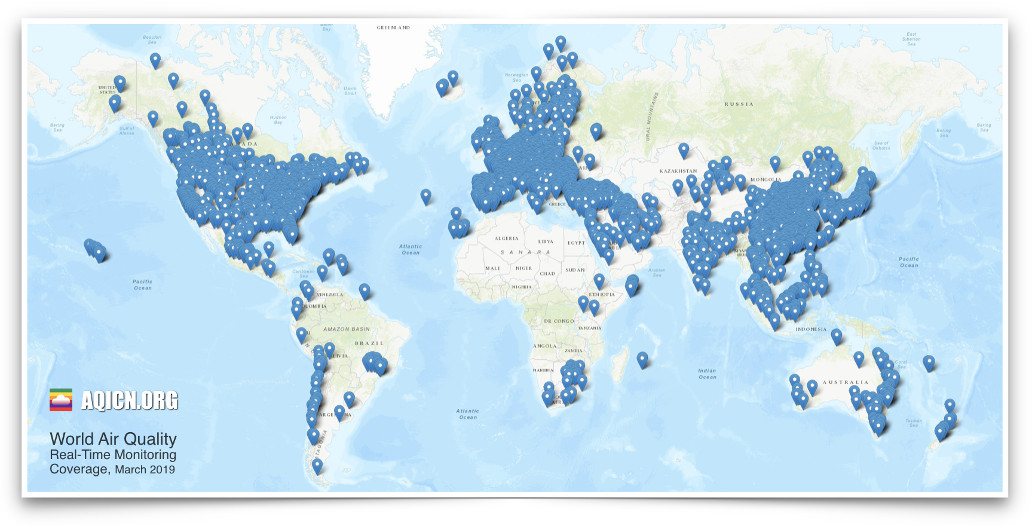
The World Air Quality Index project is a non-profit project started in 2007. Its mission is to promote air pollution awareness for citizens and provide a unified and world-wide air quality information.
The project is providing transparent air quality information for more than 130 countries, covering more than 250,000 air quality monitoring stations in 2,000 major cities, via those two websites: aqicn.org and waqi.info.
The founding team is composed of several contributors in the domain environmental sciences, system engineering, data science, as well as visual design. The team has been expanding worldwide, with new key supporters from China, Singapore, India, Australia, USA.
The project has a social intent. Yet, despite its extensive outreach, it has never received any public funding. Our income, essentially from online advertising as well as our GAIA air quality monitoring stations, is used to cover the cloud infrastructure and hosting cost.
The project is constantly looking for support from more contributors.
It has now received active contributions from more than 16205 citizens from 138 countries


